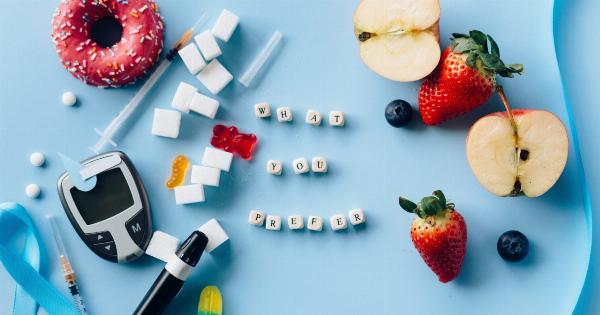When it comes to managing blood sugar levels, monitoring our food choices plays a crucial role. While most fruits are considered healthy additions to a balanced diet, some have a higher impact on glucose and insulin levels than others.
This article will explore the fruits that may cause a quicker rise in blood sugar levels and higher insulin response.
1. Watermelon
Watermelon, with its high water content and sweet taste, is a refreshing summer fruit. However, it rapidly elevates blood sugar levels due to its high glycemic index (GI).
The GI is a measure of how quickly a food raises blood sugar levels when compared to pure glucose. If you have diabetes or are watching your blood sugar levels, it is advisable to consume watermelon in moderation.
2. Pineapple
While pineapple is packed with essential vitamins and minerals, it is also high in natural sugars. This tropical fruit can cause a rapid spike in blood sugar levels due to its high glycemic index.
Moderation is key when including pineapple in your diet, especially if you have diabetes or are insulin resistant.
3. Mango
Mangoes are not only delicious but also contain numerous beneficial nutrients. However, mangoes are high in natural sugars, which can lead to elevated blood glucose levels when consumed in large quantities.
It is essential for individuals with diabetes or insulin sensitivity to monitor their mango intake carefully.
4. Bananas
Bananas are a popular and convenient fruit choice for many. While they contain valuable nutrients like potassium and dietary fiber, they also have a relatively high glycemic index. This means that bananas can cause a quicker rise in blood glucose levels.
It is best to consume bananas in conjunction with protein or healthy fats to slow down the absorption of sugars into the bloodstream.
5. Grapes
Grapes are delicious and nutritious fruits commonly enjoyed as a snack or in salads. However, they have a higher glycemic index compared to many other fruits due to their natural sugar content.
It is advisable to consume grapes in moderation and pair them with protein or fiber-rich foods to help stabilize blood sugar levels.
6. Dates
Dates are a sweet and chewy fruit commonly used as a natural sweetener. However, they have a high glycemic index, leading to a rapid elevation in blood sugar levels.
Individuals with diabetes or insulin resistance should limit their consumption of dates or pair them with protein and healthy fats to mitigate the impact on blood sugar.
7. Pomegranate
Pomegranates are known for their vibrant color and antioxidants. While they offer various health benefits, they also contain natural sugars that can contribute to higher glucose levels.
Moderation is key when enjoying this fruit, especially for individuals with diabetes or those aiming to maintain stable blood sugar levels.
8. Raisins
Raisins are dehydrated grapes with concentrated sugars. As a result, they have a higher glycemic index than fresh grapes, causing a quicker spike in blood sugar levels.
When including raisins in your diet, it is recommended to consume them in small portions and combine them with protein or healthy fats to balance the effect on blood sugar.
9. Lychee
Lychees are tropical fruits with a sweet and fragrant taste. However, they are also relatively high in sugars, which can elevate blood glucose levels.
Individuals with diabetes or those aiming to manage their blood sugar should enjoy lychees in moderation and consider portion control.
10. Cherries
Cherries are not only delicious but also provide several health benefits. However, they contain natural sugars, which can lead to increased blood sugar levels.
While cherries have a moderate impact on glucose levels compared to other fruits on this list, it is advisable to consume them in moderation as part of a balanced diet.




























